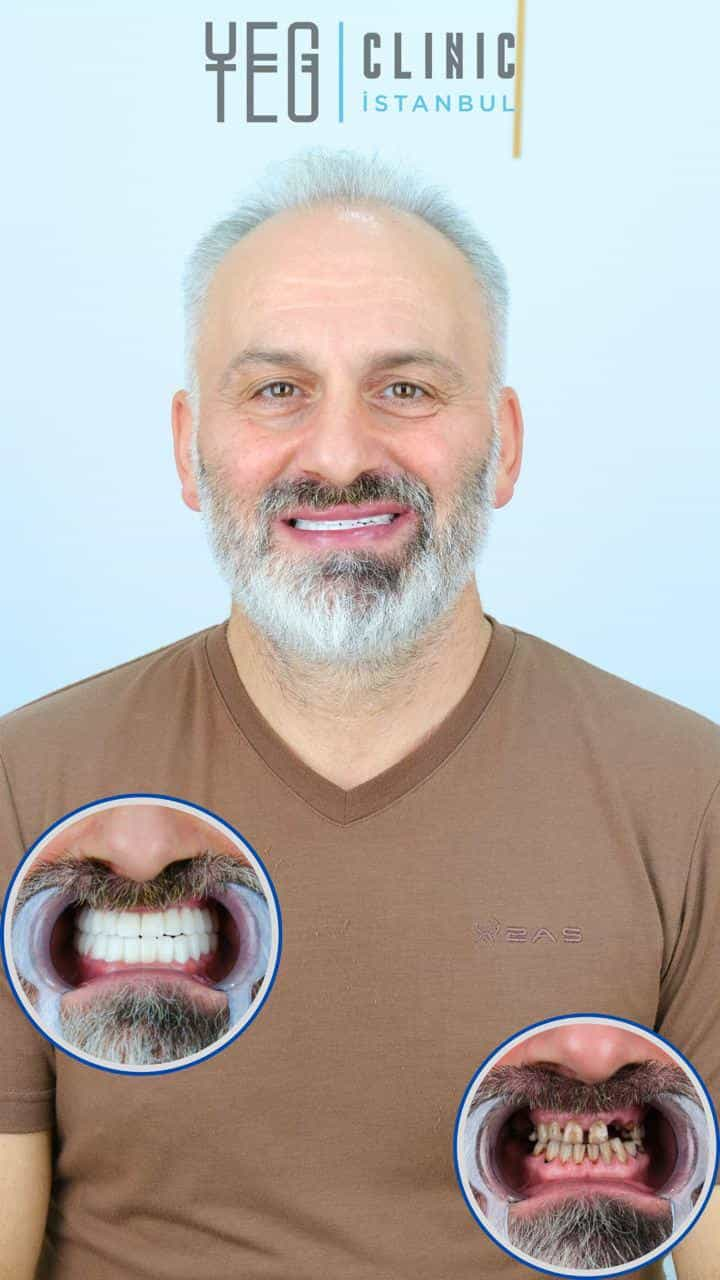
Transforming Lives: A Comprehensive Guide to Craniofacial Surgery Abroad
Facing a condition that affects your skull or face can be an immensely challenging journey, impacting not just your physical appearance but also vital functions like breathing, eating, and even self-confidence. For many, craniofacial surgery offers a path to profound transformation and improved quality of life. This specialized field of surgery focuses on correcting a wide range of congenital (present at birth), traumatic, or disease-related deformities involving the bones and soft tissues of the head and face.
Whether you're seeking solutions for a complex facial asymmetry, a skull abnormality, or the aftermath of an injury, understanding your options is the first step. For those exploring comprehensive and affordable care, considering craniofacial surgery abroad has become a compelling choice. Medical tourism opens doors to world-class surgeons, state-of-the-art facilities, and often significant cost savings without compromising on quality.
This guide aims to demystify craniofacial surgery, covering everything from the symptoms that might indicate a need for treatment, to the different types of procedures, recovery expectations, and why thousands of patients globally choose to travel for this life-changing medical intervention. Let's explore how this intricate surgery can bring about remarkable change, and how international options can make it more accessible than ever before.
What symptoms indicate a need for craniofacial surgery?
Recognizing the signs and symptoms that might necessitate craniofacial surgery is crucial for early intervention and optimal outcomes. These conditions can manifest in various ways, affecting both aesthetics and function. Patients or their guardians often notice:
- Facial Asymmetry: One side of the face appears noticeably different from the other, affecting the jaw, eyes, or general facial structure. This might be a result of a congenital condition like hemifacial microsomia or a consequence of trauma.
- Skull Deformities: Unusual head shape, flattened areas, or ridges on the skull, often seen in infants with craniosynostosis (premature fusion of skull bones).
- Functional Impairments: Difficulty with essential functions such as chewing, swallowing, breathing (due to obstructed airways), or speaking clearly.
- Eye or Vision Issues: Problems with eye position, such as widely spaced eyes (hypertelorism), or vision impairment due to orbital bone deformities.
- Jaw and Bite Problems: Significant underbite, overbite, or crossbite that cannot be corrected by orthodontics alone, indicating a need for orthognathic (jaw) surgery.
- Significant Disfigurement: Conditions like severe cleft lip and palate, or facial defects resulting from tumor removal or severe trauma.
If you or a loved one exhibit any of these symptoms, especially if they are affecting daily life or causing distress, seeking a consultation with a specialist in facial reconstruction or skull corrective surgery is highly recommended.
What causes craniofacial conditions requiring surgical intervention?
The origins of craniofacial conditions are diverse, spanning genetics, environment, and unforeseen events:
- Congenital Anomalies: These are conditions present at birth, often resulting from developmental errors during pregnancy. Examples include:
- Craniosynostosis: Premature fusion of one or more skull sutures, leading to an abnormally shaped head and potential pressure on the brain.
- Cleft Lip and Palate: Incomplete fusion of facial structures, leading to openings in the lip and/or roof of the mouth.
- Treacher Collins Syndrome, Apert Syndrome, Crouzon Syndrome: Genetic conditions causing characteristic facial and skull malformations.
- Hemifacial Microsomia: Underdevelopment of one side of the face, affecting the ear, jaw, and soft tissues.
- Traumatic Injuries: Severe accidents, falls, or assaults can cause significant fractures and damage to the facial bones and skull, requiring complex reconstructive surgery. This often falls under facial trauma surgery.
- Tumors and Cysts: Growth of benign or malignant tumors in the head and neck region can deform facial structures, necessitating their removal and subsequent reconstruction.
- Infections or Diseases: While less common, certain infections or bone diseases can also lead to deformities requiring surgical correction.
Understanding the underlying cause helps specialists tailor the most effective treatment plan, often involving a multidisciplinary team.
What types of craniofacial surgery procedures are commonly performed?
Craniofacial surgery encompasses a broad spectrum of highly specialized procedures, each tailored to address specific conditions:
- Craniosynostosis Repair: Involves reshaping the skull in infants to allow for proper brain growth and a more normal head shape. Techniques include open surgery or minimally invasive endoscopic approaches.
- Facial Reconstruction Surgery: Addresses deformities of the midface, orbits, and forehead. This often includes procedures like:
- Le Fort Osteotomies: Surgical cuts in the upper jaw (maxilla) to reposition it forward, backward, or rotated, commonly used for midface advancement surgery or facial setback surgery.
- Orbital Surgery: Corrects eye socket deformities, such as moving widely spaced eyes closer together (orbital hypertelorism correction).
- Orthognathic (Jaw) Surgery: Corrects severe jaw discrepancies that affect bite, chewing, speech, and facial aesthetics. This can involve moving the upper jaw, lower jaw, or both.
- Cleft Lip and Palate Repair: A series of surgeries performed from infancy to adolescence to close openings in the lip and palate, restoring function and appearance.
- Distraction Osteogenesis: A technique used to gradually grow new bone by slowly separating surgically cut bone segments, often used for jaw lengthening or midface advancement.
- Facial Trauma Reconstruction: Repairs complex fractures and soft tissue injuries resulting from accidents, aiming to restore both function and appearance.
- Cranioplasty: Repairing defects in the skull bone, often after previous surgery or trauma, using bone grafts or synthetic implants.
The choice of procedure depends on the patient's age, specific condition, and the goals of the surgery, often requiring meticulous planning with 3D imaging.
Who is considered an ideal candidate for craniofacial surgery?
Determining eligibility for craniofacial surgery involves a thorough assessment by a specialized medical team. While each case is unique, general criteria for craniofacial surgery for adults and children include:
- Presence of a Correctable Deformity: The patient must have a condition that can be effectively treated or improved through surgical intervention. This could be a congenital anomaly, a post-traumatic defect, or a tumor-related deformity.
- Overall Health: Candidates should be in good general health, without uncontrolled medical conditions that could increase surgical risks or impair healing. Pre-operative evaluations will assess heart, lung, and other vital organ functions.
- Age Considerations: For children, timing is crucial. Some surgeries are performed in infancy (e.g., craniosynostosis), while others, like major jaw surgeries, might wait until facial growth is complete in adolescence or early adulthood.
- Realistic Expectations: Patients and families must have a clear understanding of what surgery can achieve, acknowledging that while significant improvements are common, absolute perfection may not always be attainable.
- Psychological Readiness: Especially for adults, being mentally prepared for the surgery, recovery, and potential multiple stages of treatment is important.
- Multidisciplinary Assessment: For complex cases, candidates are often evaluated by a team including craniofacial surgeons, neurosurgeons, orthodontists, oral surgeons, ophthalmologists, ENTs, geneticists, and psychologists.
A comprehensive consultation will help determine if facial reconstructive surgery is the right path for you or your child.
What is the expected recovery process after craniofacial surgery?
Recovery from craniofacial surgery is a significant journey that requires patience and adherence to post-operative instructions. The specifics depend heavily on the type and extent of the procedure:
- Initial Hospital Stay: Most craniofacial surgeries require a hospital stay, ranging from a few days to over a week, often in an intensive care unit (ICU) initially for closer monitoring, especially for major skull or facial procedures.
- Pain Management: Pain is managed with medication, which will be prescribed for use at home. Swelling and bruising are common and can be extensive, particularly in the face.
- Diet and Activity Restrictions: A modified diet (liquid or soft foods) is often necessary, especially after jaw surgery. Strenuous activities, heavy lifting, and contact sports are typically restricted for several weeks to months.
- Swelling and Numbness: Significant swelling usually peaks within 2-3 days and gradually subsides over several weeks. Numbness in certain facial areas is also common and may take months to resolve, or in some cases, can be permanent.
- Follow-up Appointments: Regular follow-up visits with the surgical team are essential to monitor healing, remove sutures, and adjust any devices (like jaw fixation).
- Long-term Healing: While initial recovery takes weeks, full healing and the final aesthetic results can take many months, sometimes even a year or more, as tissues settle and remodeling occurs. Physical therapy or speech therapy may also be part of the rehabilitation.
Understanding this recovery timeline is crucial when planning for facial surgery recovery time, especially when traveling abroad.
What are the potential risks and side effects of craniofacial surgery?
Like any major surgical procedure, craniofacial surgery carries inherent risks, which your surgical team will discuss thoroughly:
- General Surgical Risks: These include adverse reactions to anesthesia, excessive bleeding, infection at the surgical site, and blood clots.
- Nerve Damage: There is a risk of temporary or permanent nerve damage, which can lead to numbness, altered sensation, or weakness/paralysis in facial muscles.
- Scarring: While surgeons strive to place incisions discreetly, scarring is inevitable. The extent and visibility of scars vary.
- Bone Non-union or Malunion: In some cases, bones may not heal properly or may heal in an incorrect position, potentially requiring further surgery.
- Unsatisfactory Aesthetic or Functional Outcome: Despite the surgeon's best efforts, the results may not fully meet expectations, or functional improvements may be limited.
- Relapse or Recurrence: In some conditions, especially those involving growth, there can be a risk of the deformity recurring over time, necessitating future procedures.
- Cerebrospinal Fluid (CSF) Leak: For surgeries involving the skull base, there is a small risk of CSF leakage.
Choosing an experienced and board-certified craniofacial surgeon in an accredited facility significantly minimizes these risks.
How much does craniofacial surgery cost globally, and what factors influence it?
The cost of craniofacial surgery can vary dramatically depending on several factors, making international comparisons crucial for many patients:
- Complexity of Procedure: Simple repairs are less costly than extensive reconstructions involving multiple stages or advanced techniques like distraction osteogenesis.
- Surgeon's Fees: The experience, reputation, and specialization of the craniofacial surgeon directly impact their fees.
- Hospital Fees: These include operating room costs, anesthesia, hospital stay, nursing care, and any necessary medical supplies or implants.
- Pre and Post-Operative Care: Consultations, diagnostic tests (CT scans, MRIs), medications, and follow-up appointments all add to the total cost.
- Geographic Location: Healthcare costs vary significantly by country and even by region within a country.
Craniofacial Surgery Cost Comparison Table (Estimated Ranges)
| Country | Estimated Cost Range (USD) | Notes |
|---|---|---|
| USA/Canada | $50,000 - $150,000+ | High-end facilities, leading surgeons, but often very expensive without robust insurance. |
| Mexico | $25,000 - $60,000 | Popular for quality care at significantly lower costs, accessible for North Americans. |
| India | $20,000 - $50,000 | Highly competitive pricing, internationally accredited hospitals, skilled surgeons. |
| Turkey | $20,000 - $55,000 | Emerging medical tourism hub, modern facilities, experienced European-trained doctors. |
| Thailand | $30,000 - $70,000 | Excellent reputation for hospitality and high-quality private hospitals, especially in aesthetics. |
| South Korea | $35,000 - $80,000 | Known for advanced technology and expertise in complex reconstructive and cosmetic facial surgeries. |
Note: These are estimated ranges and can vary widely based on the specific procedure, hospital, surgeon, and individual patient needs. Always obtain a personalized quote.
Why should I consider traveling abroad for craniofacial surgery?
For many patients seeking specialized and often life-changing procedures like craniofacial surgery, the decision to travel internationally is driven by several compelling factors:
- Significant Cost Savings: As seen in the table above, the cost of complex surgeries can be drastically lower in medical tourism destinations compared to the USA, Canada, or Western Europe, often by 50-70%. This makes otherwise unaffordable treatments accessible.
- Access to Specialized Expertise: Some countries boast world-renowned craniofacial surgeons who have trained internationally and possess extensive experience with rare or complex conditions, offering a higher level of specialized care.
- Reduced Wait Times: In countries with universal healthcare systems, long waiting lists for specialized surgeries can be a reality. Traveling abroad can offer immediate access to care.
- High-Quality, Accredited Facilities: Many international hospitals catering to medical tourists are JCI (Joint Commission International) accredited, meaning they meet rigorous international standards for patient care and safety. They often feature cutting-edge technology and modern infrastructure.
- Privacy and Anonymity: For some, undergoing a significant facial procedure in a different country offers a sense of privacy and anonymity during their recovery.
- Comprehensive Patient Support: Medical tourism facilitators often provide end-to-end services, including travel logistics, accommodation, interpreter services, and local support, making the process smoother.
Considering medical tourism for craniofacial procedures can open up new possibilities for treatment that might otherwise be out of reach.
Which countries are recognized for offering excellent value in craniofacial surgery?
Several nations have established themselves as leaders in medical tourism, offering exceptional value for craniofacial surgery:
- India: Renowned for its highly skilled surgeons, advanced medical technology, and some of the most competitive pricing globally. Major cities like Delhi, Mumbai, and Bangalore have internationally accredited hospitals specializing in complex surgeries.
- Mexico: Particularly popular with North American patients due to its proximity and significantly lower costs. Cities like Tijuana, Cancun, and Guadalajara offer modern facilities and experienced surgeons, often with US training.
- Turkey: A rising star in medical tourism, offering state-of-the-art hospitals, European-trained surgeons, and a blend of affordability with high-quality care, especially in Istanbul and Ankara.
- Thailand: Known for its exceptional hospitality, world-class private hospitals, and expertise in cosmetic and reconstructive surgeries. Bangkok and Phuket are popular destinations.
- South Korea: A hub for advanced reconstructive and aesthetic facial surgeries, benefiting from cutting-edge technology and highly specialized doctors. While potentially slightly higher in cost than some others, the innovation and precision are often unparalleled.
When selecting a destination, research not just the cost but also the specific surgeon's credentials, hospital accreditation, and patient reviews for best hospitals for craniofacial surgery abroad.
What should I expect when planning craniofacial surgery abroad, and how can I ensure safety?
Embarking on a medical journey abroad requires careful planning and due diligence to ensure a safe and successful experience:
- Initial Research & Consultation:
- Start by researching potential destinations, hospitals, and surgeons. Look for specialists in the specific type of craniofacial surgery you need (e.g., maxillofacial surgery for adults).
- Utilize a reputable medical tourism facilitator like PlacidWay. They can connect you with accredited hospitals and experienced surgeons, provide initial quotes, and help with virtual consultations.
- Prepare medical records, diagnostic images, and a detailed medical history to share with potential international surgeons.
- Pre-Trip Planning:
- Obtain a personalized treatment plan and comprehensive quote, including surgery, hospital stay, medications, and follow-up care.
- Arrange travel logistics: flights, accommodation (consider proximity to the hospital), and local transportation. Many facilitators offer packages that include these.
- Ensure you have a valid passport and any necessary visas. Check travel advisories for your chosen destination.
- Understand the estimated duration of your stay – typically, you'll need to remain in the country for several weeks post-op for initial recovery and follow-up.
- Ensuring Safety and Quality:
- Accreditation: Prioritize hospitals with international accreditations like JCI (Joint Commission International) or local equivalent high standards.
- Surgeon Credentials: Verify the surgeon's board certifications, experience in craniofacial surgery, and any international affiliations. Ask for patient testimonials or before-and-after photos (respecting privacy).
- Communication: Confirm that you will have access to interpreters if there's a language barrier. Clear communication with your medical team is paramount.
- Post-Operative Plan: Discuss the detailed post-op care plan, including pain management, follow-up appointments, and emergency protocols. Understand how your recovery will be monitored after you return home.
- During and After Your Stay:
- Have local support contacts. Your medical tourism facilitator can often provide this.
- Adhere strictly to all post-operative instructions.
- Plan for a comfortable recovery period; avoid rushing sightseeing or strenuous activities.
By taking these steps, you can confidently pursue corrective skull surgery overseas with peace of mind.
Take the Next Step with PlacidWay
Ready to explore treatment options abroad? Discover top clinics, compare prices, and get a free quote tailored to your needs with PlacidWay. Our expert team is here to guide you through every step of your medical journey, ensuring safety, quality, and exceptional care.
Cancer Treatment Abroad, Breast Cancer, Lung Cancer


-Package-in-Kuala-Lumpur,-Malaysia-by-FirstCell.jpg)
.jpeg)






Share this listing